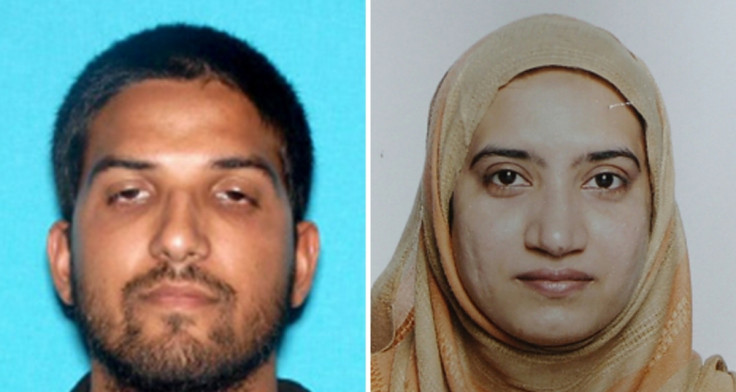San Bernardino shootings: Body of Tashfeen Malik may be cremated in contravention of Islamic religious practice

The body of San Bernardino terrorist Tashfeen Malik may be cremated in contravention of Islamic law, because nobody wants to claim it. The 27-year-old and her husband Syed Farook, 29, were killed in a stand-off with police on 2 December, after they opened fire in a conference area killing 14 people from the San Bernardino County's public health department.
Since the deadly massacre a week ago, the bodies of the terrorists have been held at the San Bernardino County morgue. Farook's remains are expected to be released to his immediate family in California for his burial in accordance with Islamic rituals. However, while Malik's family in Saudi has been contacted, nobody has come forward to claim her body, .
The state is not going to care about religious tradition. She was a terrorist.
She has no relatives in America and is not known to have worshiped at mosques close to her former home in Redlands, whose clerics might have stepped forward to conduct her last rites.
According to Fox News an unnamed source in the Muslim community said: "No one wants to claim her and no one wants to do the funeral. They are all waiting for someone else to be the one to take care of this part of it."
If Malik's body remains unclaimed after one month, in accordance with state law her body will be cremated at the taxpayer's expense. Unclaimed bodies are cremated as it is the cheapest form of burial, however the practice is forbidden in even the most moderate forms of Islam.
According to the Mail Online, Attorney Troy Slaten stated categorically that San Bernardino county officials will not grant the privilege of an Islamic burial to Malik if her body remains unclaimed. "If nobody claims a body, it is turned over to the public administrator, who will handle it civilly and not religiously," he said. Another attorney, David Wohl, added: "The state is not going to care about religious tradition. She was a terrorist."
According to the strictest interpretation of sharia law, the burial must take place as soon as possible after death, usually within 24 hours, except in the case of a violent or suspicious death, to allow for investigations to take place. An autopsy is also considered a desecration of the dead.
Investigators are exploring possible connections between Farook and his wife to terror groups abroad to determine whether they were acting on orders from fundamental jihadist groups.
© Copyright IBTimes 2025. All rights reserved.






















